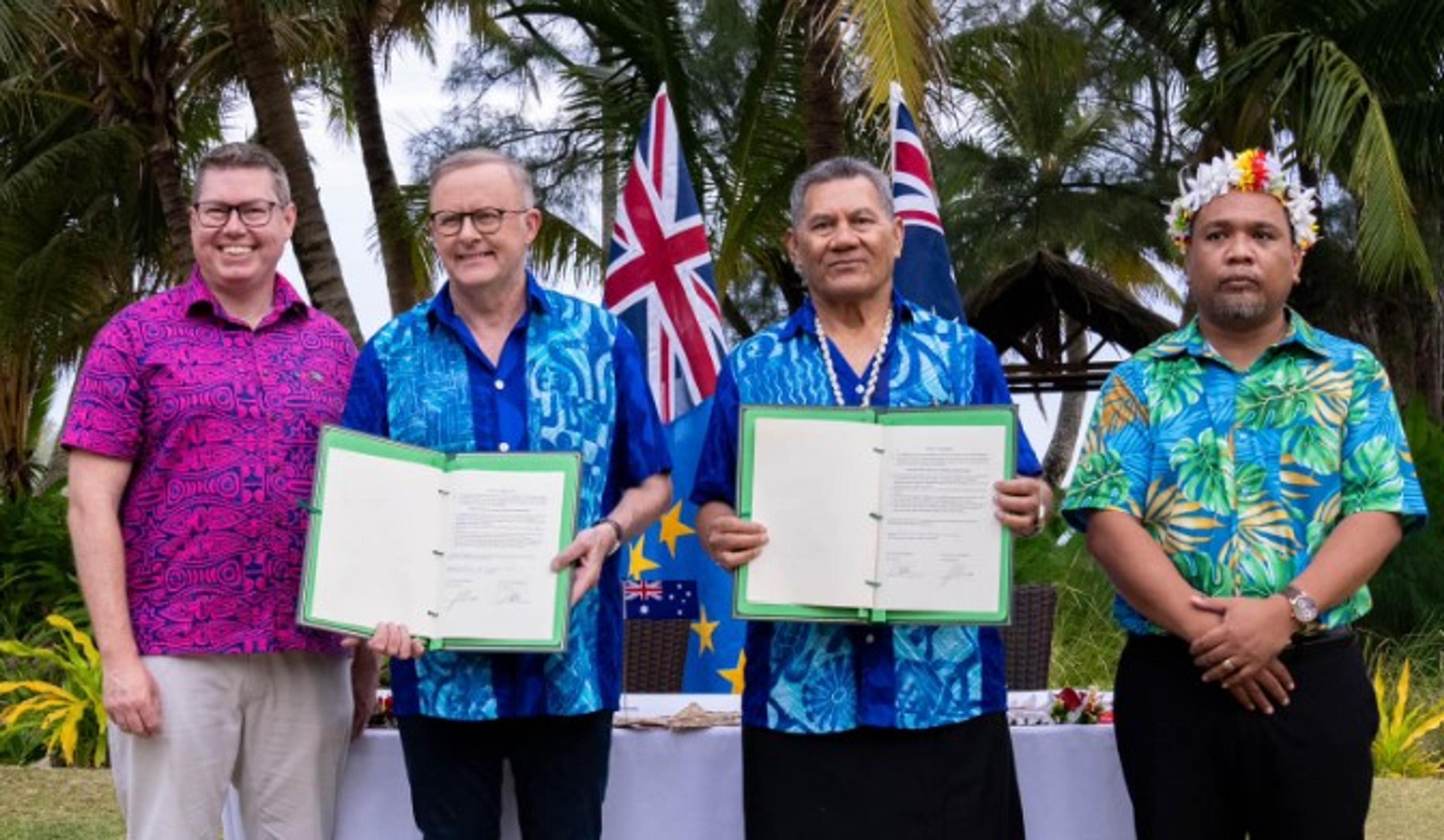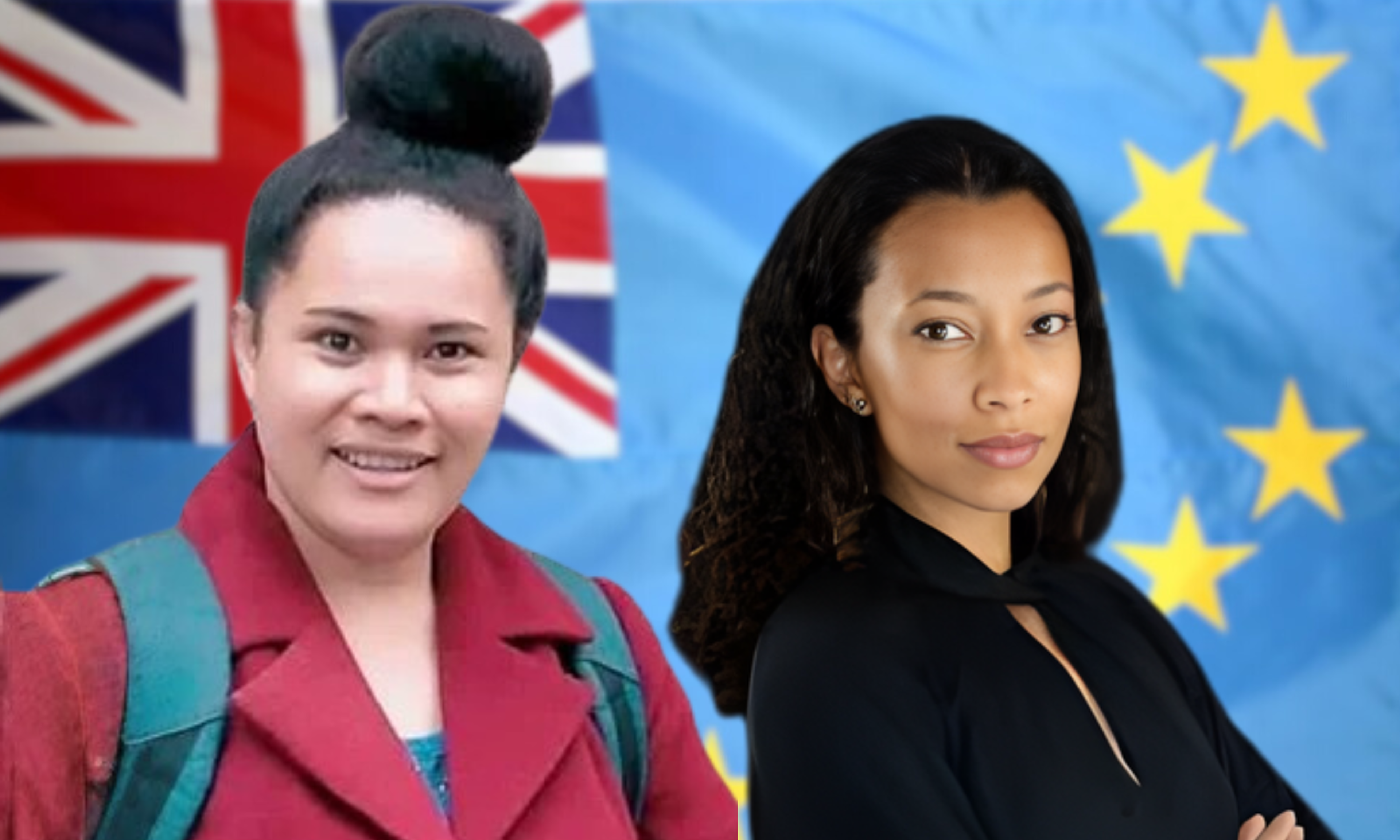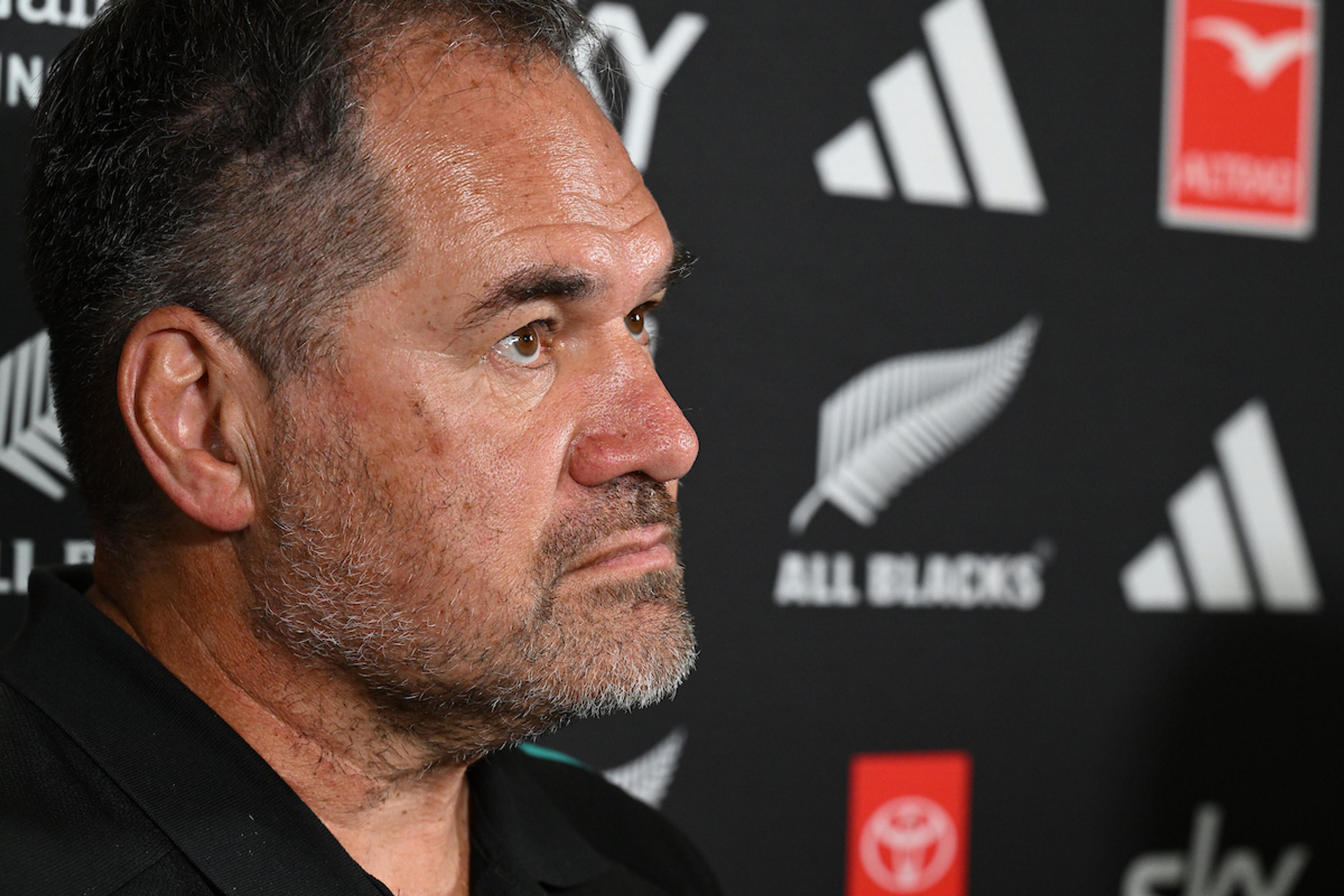

Australia's prime minister Anthony Albanese and Tuvalu's prime minister Kausea Natano signed a treaty known as the ‘Falepili Union’.
Photo/ Anthony Albanese
‘Another form of colonialism’: Academics react to Tuvalu-Australia treaty
Academics are questioning what's really on the table with the signing of the Australia-Tuvalu Falepili Union treaty.


Realm relations in focus as Tokelau-NZ marks 100-year history


Dave Rennie becomes first All Blacks coach of Pacific heritage


Realm relations in focus as Tokelau-NZ marks 100-year history


Dave Rennie becomes first All Blacks coach of Pacific heritage
A Samoan academic in Australia describes the country's recently signed treaty with Tuvalu as "unbelievable".
The historic pact between Tuvalu and Australia, gives Tuvalu visas, land reclamation and $16.9 million in climate funding, and Australia gets veto rights on any security agreements Tuvalu is considering with other countries.
University of Adelaide research fellow Maualaivao Maima Koro questions whether both countries are on the same page.
“This is just another form of colonialism. Going back to this agreement, the wording … much of the language is about dignity, much of the language is around sovereignty, but is there an alignment of understanding of how this works and the details about how this is going to be implemented?”
The scheme would offer 280 visas per year to Tuvaluans to live, work or study in Australia. Speaking to Levi Matautia-Morgan on 531pi’s Pacific Mornings, Maualaivao hopes the deal will serve Tuvalu’s interests, but warns history shows otherwise.
“The experience to date in terms of schemes around visa and the mobility of Pacific people to Australia hasn’t always been that good.”
Tuvalu’s Finance and Climate Minister Seve Paeniu says their primary focus is on climate adaptation, but the visa option is there as a backup.
“That doesn’t mean we are forcing people to migrate to Australia or to relocate, it’s an opportunity for a personal choice for anyone in Tuvalu who wishes to go and live in Australia.
“In the event that we are not able to adapt more quickly than the impact that is now being forced on us because of climate change, it is the duty of any government in Tuvalu to ensure that people have other opportunities in the event things don’t work out our way.”
Maualaivao’s PhD study is on the intersection of security and justice in Pacific communities. She says Australia has been trying to land this deal for a while.
“This is not new. This has been circulated in former government of Australia think-tanks in various forms before it came through as the Grand Compact. There’s also proposals around formal constitution condominium, shared governance - all in all, the bottom line is, it’s about control, this is about power.”
Massey University senior lecturer in security studies Dr Anna Powles says signing the treaty during the leader’s meeting was strategic.
“The treaty was signed at the Pacific Island Forum in part to give it a veneer of regional legitimacy.
“This was an effective strategy as Pacific leaders were unlikely to publicly criticise Tuvalu’s decisions.”
Dr Powles says there has been little reaction from locals, but public perception may be evident in a few weeks time.
“The level of domestic support for the treaty in Tuvalu is unclear due to the lack of public consultation. Its popularity may be tested at the polls when Tuvalu votes in a new government in January 2024.”
But Paeniu says he doesn’t buy into those arguments and they are fully aware of what was agreed.
“Both parties were conscious that whatever agreement we reached, that Tuvalu’s sovereignty, Tuvalu’s right to determine its own destiny ought to be maintained right throughout, and that should never be compromised and that was our red line for Tuvalu.
“Going into the negotiations with Australia, we made it absolutely clear that Tuvalu’s sovereignty and the right to determine his own future should never be compromised and that was the basis of our discussion.”
He says Australia will only step in in the event of a natural disaster, a health pandemic, or when military protection is needed.
“[Then] there is an obligation on the part of Tuvalu to give Australia access, where relevant and necessary, to its national and security infrastructure assets, like the airport, telecommunications, power, electricity, in order to facilitate its assistance to be effectively delivered and deal with that emergency situation.
“So it’s only during those times and those situations, and they are finite for a period of time.”
Australia's Foreign Minister Penny Wong told ABC News the government needs to "work harder to be a partner of choice" for Pacific Islands.